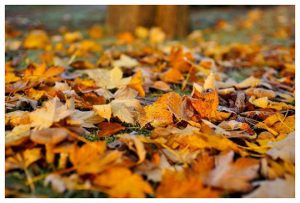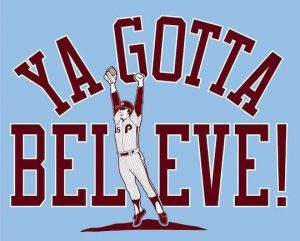As we watch the leaves descend, we do not tell them to stop on their way down. We do not cushion their fall. We may try to catch a few. If enough leaves have fallen we may wish the rest would hurry down in order to make raking a one-time event. In other words, we speak very differently about leaves falling than we do about people falling.
 When people fall, we want to stop or prevent them from getting hurt. We try to arrest the descent in order to diminish its impact. We do not want someone falling to actually hit the ground. It is almost the opposite of how we think about leaves falling.
When people fall, we want to stop or prevent them from getting hurt. We try to arrest the descent in order to diminish its impact. We do not want someone falling to actually hit the ground. It is almost the opposite of how we think about leaves falling.
Now that the air is cold and many trees have already shed their leaves, I am struck by the idea that we can learn something from being more open to the damage of a fall. By raking or blowing our leaves into piles to be taken away, we miss the more significant fall; we miss the leaves decomposing and thereby enriching the ground beneath them. We miss how being broken becomes something just as inspiring as the vibrant colors of the leaves when they first change.
The Torah portion read by Jews this week opens with God appearing to Abraham as he sits at the entrance of his tent, in the heat of the day, shortly after circumcising himself at age 99. Abraham is not standing tall, he is not leading his household, and he is not arguing justice with God. Abraham is tired, he is hurt, and he is broken. That is when God appears to him.
Abraham did not stop to smell the roses in order to find God. Abraham did not go off in the wilderness to be alone to find God. Abraham did not see a beautiful sunrise and find God in it. Abraham had surgery with no anesthetic and may also have had heat exhaustion when he sees God. He did not brake for God; he broke for God. We know because he immediately jumps to welcome the angels he sees right then.
We often think of suffering, of being down or depressed, as a time when one loses faith or finds God absent. We think it because so often it is true. When we are down, we feel alone and lonely.
What if we looked at the leaves and Abraham’s physical low point as metaphors for our own falls, our own downturns? There is no joy in suffering, no, but there is something more than pain. There is a rawness, a closeness to our spiritual self, that beckons. When we stop looking at all the material successes and challenges, we are able to see what is really there or what is missing. That moment of reckoning does not make it better, but it is precisely when we chance to see what is divine in us. Perhaps, that divinity has lost its light or its connection to our individual purpose. Perhaps that divinity has been reduced to something too little. Either way, it is there. God is there; God appears when we break.
Some of us will be able to jump up like Abraham; most will struggle to kindle our divine spark into a flame as we re-find our purpose. The climb, whether fast or slow, is on surer footing than when we reached for the stars. The next time, if we fall, we know what to find; we know we are breaking for God.
About Rabbi Jeremy Winaker
Rabbi Jeremy Winaker is the executive director of the Greater Philadelphia Hillel Network, responsible for West Chester University, Haverford, Bryn Mawr, and other area colleges. He is the former head of school at the Albert Einstein Academy in Wilmington and was the senior Jewish educator at the Kristol Hillel Center at the University of Delaware for four years. Rabbi Winaker lives in Delaware with his wife and three children.


 (2 votes, average: 3.50 out of 5)
(2 votes, average: 3.50 out of 5)
Comments